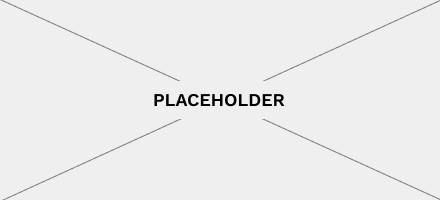
The European Commission today proposed legislation to ban all European Union exports of mercury from 2011. The ban forms a key part of the EU's strategy for reducing global exposure to mercury, which is highly toxic to both humans and the environment. The export ban will significantly reduce global supply and thereby also emissions of the heavy metal into the environment.. The proposed Regulation requires mercury that is no longer used in the chlor-alkali industry or that is produced in certain other industrial operations to be put into safe storage once the export prohibition takes effect in July 2011. The Commission is organising an international mercury conference on 26-27 October in Brussels to promote global action, including the possible development of a legally binding international agreement, to reduce human and environmental exposure.
Environment Commissioner Stavros Dimas said: "This proposal underlines the Commission's determination to protect people and the environment from exposure to this highly toxic metal. In banning exports of mercury and requiring its safe storage, the EU will be setting an example for global action to reduce emissions. I urge other countries to support moves towards a worldwide agreement."
Dangers of mercury exposure
Mercury and its compounds are highly toxic to humans, animals and ecosystems. High doses can be fatal to humans, but even relatively low doses can seriously affect the nervous system and have been linked with possible harmful effects on the cardiovascular, immune and reproductive systems. Mercury persists in the environment, where it can change into methylmercury, its most toxic form. Methylmercury readily passes through both the placenta and the blood-brain barrier, so exposure of women of child-bearing age and of children is of greatest concern.
Mercury use and exports
Mercury use is declining both in the EU and globally. Global demand is around 3,400 tonnes per year, with the EU-15 accounting for 440 tonnes in 2005.
Globally, the main uses of mercury are in small-scale gold mining, the chlor-alkali industry and production of vinyl-chloride monomer, the basis of PVC plastic. In the EU only the chlor-alkali industry remains a significant user, and it is progressively phasing out the use of mercury-containing cells in its production of chlorine. The next most significant use in the EU is in dental amalgam.
A main global supplier of mercury is the Spanish state-owned firm MAYASA, which supplies around 1,000 tonnes per year.
MAYASA re-sells mercury that it buys from the EU chlor-alkali industry as mercury cells are phased out. It is estimated that between now and 2020 some 12,000 tonnes of mercury will become available due to this phase-out.
The proposal
To contribute to a global reduction in mercury exposure, the proposed Regulation[1] would ban mercury exports from the EU from 1 July 2011. From the same date, mercury no longer used in the chlor-alkali industry as well as mercury gained from the purification of natural gas or production of non-ferrous metals would have to be safely stored[2].
The Commission has consulted widely on its proposal and MAYASA, the Spanish government and the European chlor-alkali industry the stakeholders most directly affected have agreed to the ban from the date proposed. The Commission has taken note that Cefic, the European chemical industry organisation, has given a voluntary commitment to ensure safe storage of mercury from the chlor-alkali industry from 1 July 2011.
The proposed Regulation now goes to the European Parliament and the Council of Ministers for approval under the co-decision procedure.
International mercury conference
Reducing mercury exposure worldwide requires action at international level to complement the EU's own measures. The EU has already raised the need for a legally binding global instrument on mercury at the Governing Council of the UN Environment Program (UNEP).
The international conference on mercury organised by the Commission on 26-27 October in Brussels will focus on reducing supply and demand and should make it possible to identify options for global action. The conference comes just four months before the next meeting of the UNEP Governing Council in February 2007, where the issue of a binding global instrument will again be discussed.
The conference aims to increase international awareness of mercury issues and to facilitate contacts between producing/exporting countries and consuming nations. Participants are expected from more than 30 non-EU countries including China, Russia, India, Brazil, the United States and Canada.
Background
The EU mercury strategy, launched by the Commission in January 2005, is a comprehensive plan addressing mercury pollution both in the EU and globally. It contains 20 measures to reduce mercury emissions, cut supply and demand and protect against exposure, especially to methylmercury found in fish. The export ban and safe storage of surplus supplies are major aspects of the strategy.
See also: http://ec.europa.eu/environment/chemicals/mercury/index.htm
--------------------------------------------------------------------------------
[1] COM(2006) 636.
[2] For instance in underground salt mines adapted for waste disposal

